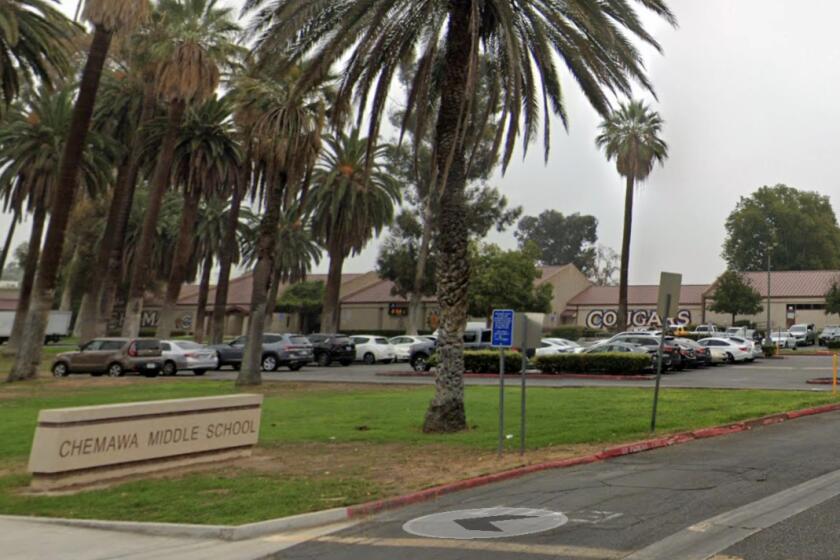Taking the Pledge for a Minority’s Rights
Re “Students Can Put Hands Over Their Hearts, or Their Ears,” by David Tubbs, Commentary, Dec. 24: I was 8 years old, and a nonbeliever, when the words “under God” were added to the Pledge of Allegiance in 1954. In addition, each morning a student was required to read a selection from the Bible aloud to the class. In the fifth grade, however, I objected to taking my turn, telling my teacher that I did not believe in it. In the end I lost the battle and took my turn.
Tubbs ignores the intense peer pressure involved in the classroom situation and how having to be conspicuously different is difficult for any child. He also says that “merely reciting a text with a reference to a deity” should not be a violation of the establishment clause of the Constitution, and asks, “Why should the rights of the offended prevail over the rights of the students who want to say the pledge?”
The 1st Amendment is meant to protect minority rights. To put a child in a situation where he or she is pressured to affirm belief in a deity the child does not believe in, or risk the disapproval of the rest of the children, violates everything the 1st Amendment is about.
Jonathan Hubbell
Laguna Niguel
*
Hard to believe that a visiting fellow at the American Enterprise Institute could get it so wrong. The point of the so-called pledge case is not one of reciting the pledge or even coercion by teachers to say the pledge. The real point is those two little words shoved into the pledge by a McCarthy-crazed Congress back in 1954: under God. Since when does the recitation of a loyalty oath require a profession of belief in God? And this is no small “g” god -- this is the large, bearded white-guy-in-the-sky Judeo-Christian God; no ifs, ands or buts!
Hasn’t Tubbs ever heard of the freedom of conscience? It’s the one Winston Smith relinquished to Big Brother in “1984.” Putting one’s hands over one’s ears cannot quell that quandary. By the way, Mr. Tubbs, the Declaration of Independence uses the words “their Creator,” not “our Creator.” Big difference. I urge the Supreme Court to do the right thing; remove “under God” and make us indivisible again.
Mark Larson
Pico Rivera
*
The recitation of the pledge is an exercise of the power of the schools to require attendance at a ritual. Tubbs muddies the water by implying that the majority of the students are pounding at the schoolhouse door to demand the right to recite the pledge. Persons with a little knowledge of children and parents would suggest that it is more likely that the children are, at best, indifferent, and it is the parents who demand the right to require the recitation of the pledge. There is a distinct difference between a parent demanding that his children recite the pledge and a parent demanding that all children, regardless of inclination, be required to participate in that ritual.
Failure to acknowledge this difference is an objective of the “tyranny of the majority.”
Frank Eastman
Costa Mesa
More to Read
Sign up for Essential California
The most important California stories and recommendations in your inbox every morning.
You may occasionally receive promotional content from the Los Angeles Times.










